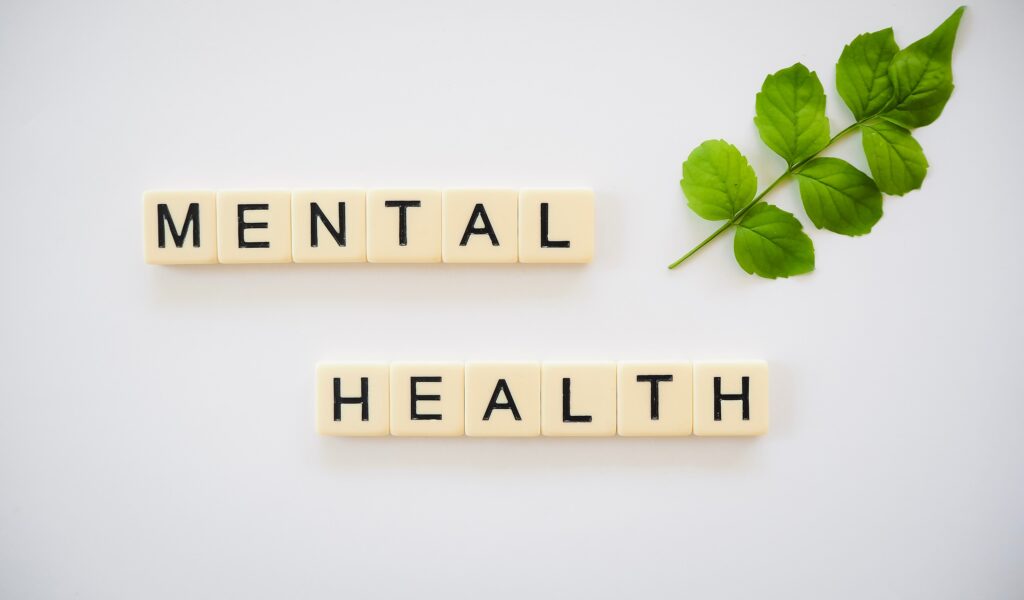Perinatal Mental Health: An Interview with Therapist Tayyibah Chase

Resources and connection are both so important! At Bay City Doulas, we consistently network with other providers in our service areas. We do this in hopes of bringing our clients and community great resources throughout the beginning of their parenting journeys. We hope you enjoy this week’s blog, perinatal mental health: An Interview with Therapist Tayyibah Chase.
Hi Tayyibah, thank you for joining us for this week’s blog. It was wonderful to hear more about your practice last week, and we are excited to share what we learned with our readers. Can you start by telling us about yourself and how you became a perinatal therapist?
Thank you for connecting with me and having me share my experience. My name is Tayyibah Chase, and I am a licensed marriage and family therapist specializing in perinatal mental health in California. I’m also a mother to my amazing 18-month-old daughter, Nova.
The beginning of my career- Throughout my years working in the field of mental health, I often found myself confronted with the specific needs of parents on their mental health journeys. The challenges my clients faced were very nuanced and heightened by the challenges of parenthood. As a therapist, I felt like I wasn’t addressing the specific intersections of mental health and parenthood. I started to realize that there was a massive gap in the training I’d received to support the parent population.
Switching gears- In 2021 I was pregnant with Nova and began experiencing intense anxiety related to birth. My needs were like nothing I’d experienced before and I knew I needed a therapist that specializes in perinatal concerns. I knew from then on that I wanted to help fill the gap in providers that are specifically trained to support perinatal mental health.
It’s no secret that there isn’t much support for postpartum moms in America’s healthcare system; how do you think your practice benefits new parents?
There are few built-in support systems for mothers in our current healthcare system, and even fewer for mothers of color. Many of my clients have expressed the benefits of having a therapist of color that can help support the specific needs that are faced by women of color in our healthcare systems.
With all of my clients, I allow them to create a unique narrative of their birth journey because there are so many societal assumptions and pressures about what postpartum healing looks like. I support them in building a healthy network by increasing bonding activities with their little ones. I also provide insight into the unique outcomes that are available to parents if given the space. Our society is less communal in supporting new parents than it once was. We must actively create communities supporting us when we feel anxious, depressed, or traumatized post-birth.
I also support clients with naming their emotional experiences postpartum. We’ve come a long way in destigmatizing mental health. However, it’s still a taboo topic for some parents because there is an assumption that birth is a joyous experience for everyone, or that what they’re experiencing are “new parent” worries or “just the baby blues.” We must be more inquisitive about what our clients are experiencing to provide them with the right support.
When is the most valuable time to call on your services for a helping hand?
In my opinion, it’s best to seek therapy as soon as you embark on your journey to becoming a parent. We often ignore the process of having a child and how stressful and scary it can be for families. Many women seek my services during postpartum and name how difficult and traumatizing their fertility journey was. It’s a shame that mental healthcare isn’t built into our healthcare system in this way, but I’m hoping that there will be a shift in the future.
What advice do you have for new parents?
The best advice I have for parents is to be gentle with yourself. There is no perfect way to go on a birth journey, there’s only your way. I often discuss with clients the idea of “surrendering to the process”. Not in the sense that you don’t become proactive about your care, but that your baby has their own wisdom and guidance for you to listen to and learn from. Surrendering to not being the expert on their needs. When my daughter was in the NICU, I accepted that the doctors had the expertise to support my daughter that I did not have and that I could release some control and advocate for my daughter’s needs without feeling like I have to do it all.
Are there postpartum practices that you feel are beneficial outside of therapy that can benefit perinatal mental health?
Creativity is great for our mental health and overall well-being. Listening to music, dancing, singing, painting, and writing. It doesn’t have to be extravagant. Being creative can be useful in supporting our mental health because it allows us to express our emotions in new ways when our feelings are so complex.
Another suggestion is to get outside and get fresh air and sunlight if you can. We get a large dose of our vitamin D from sunlight and it’s an absolute mood booster. Mindfulness and meditation are great as well.
Let’s talk about mood disorders; what are the most common ones you feel people experience postpartum? What is the best thing to do if you are experiencing a postpartum mood disorder?
I frequently see postpartum anxiety and postpartum depression. If you’re starting to notice symptoms of depression or anxiety, my first tip would be to seek a qualified mental health professional. A good place to start is the postpartum support international therapist directory. A therapist will be able to properly assess your mental health needs, help you develop a treatment plan, and coordinate care with other providers.
The second tip would be to seek community with other parents or a support group specific to your experience. There was a statement that I came across once that said that depression is fueled by isolation. It was referring to the mental isolation that we experience when we feel like no one else feels how we feel. Even though there are so many parents in the world, becoming a parent is still a very isolating experience. We are often alone with our thoughts or inundated with other people’s thoughts and both of these can be challenging. During my postpartum journey, I joined a mom’s hiking group and met a woman who had a preemie baby shortly after me and we instantly connected over our unique journeys.
A third tip would be to restructure or reprioritize your social networks. Sometimes the people that were supportive of us in other aspects of our lives might not be the best to support us in our parenting/postpartum journeys.
How do you think lack of sleep can affect mental health postpartum?
Poor or disruptive sleep is of top consideration as a mental health professional. Lack of sleep can impact our moods, communication, our hormones, and our postpartum healing. We often think that we should just sleep well by default, but good sleep hygiene is a practice that we have to create for ourselves. As parents, we put so much effort into our kid’s sleep time routines and allow ourselves to fall asleep in any manner. We need to build our own sleep routines even if the sleep is disrupted or intermittent for a while.
I remember when my daughter was in the NICU I had to wake up every three hours to pump, so I never had a straight 6-8 hours of sleep. But I realized very quickly that short naps were going to be my lifeline. I felt guilty sleeping while my daughter was in the NICU, but I had to reframe it for myself. If I wasn’t showing up to the hospital rested then I wouldn’t be able to advocate for her needs or comprehend anything the doctors were telling me.
What aspect of a postpartum doula do you feel is the most beneficial for someone who is having a hard time postpartum?
The most beneficial part of having a postpartum doula is to receive support that is holistic and family-centered. Oftentimes during postpartum, there is a drastic shift from medical providers or family toward the health of the baby and parents can feel neglected and unsupported. Doulas are one of the very few providers that will see a family within their own home. There is so much to gather about the health of a family postpartum, based on how they are functioning at home. During postpartum, we might put on a mask of happiness and “being okay” while out with family and friends, but at home, we’re falling apart. Doulas are there during the most vulnerable moments within the home. They can also be liaisons and advocates for seeking mental healthcare because they can see how the parents’ mental health might be affecting their ability to care for the baby or themselves.
Where can we go to find out more about your practice?
You can visit my website at munawellness.com. My therapist bio pages can also be found on Psychology Today, Postpartum Support International, and Therapy for Black Girls.
Final notes.
For all the parents, hang in there and you’re doing a great job. Someone simply said I was doing a good job when I thought I was failing at being a mother. It was the best statement anyone could’ve said to me at that time.
Thank you for joining us on our blog this week! To all new parents, we hope you know you aren’t alone. There are many resources out there to help you through this new journey in life. If you feel you could use additional support please visit our website, we will gladly help to find support for you.
Thank you for reading this weeks’ blog, “Perinatal Mental Health: An Interview with Therapist Tayyibah Chase.” To continue reading and learning about more tips for new parents visit our weekly blog by clicking here.

